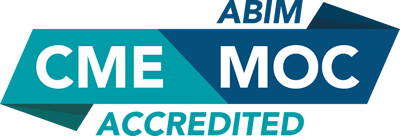
COURSE CREDITS & HOURS
20 AMA PRA Category 1 Credits™20 ACPE Credits
20.0 Contact Hours
20 (part II) MOC points in medical knowledge in the American Board of Internal Medicine's (ABIM) Maintenance of Certification (MOC) program
6 Hours of Pharmacology for Nurse Practitioners
COURSE FEES
TARGET AUDIENCE
PROGRAM PURPOSE
The purpose of the educational activity is to provide updated information on the diagnosis and management of serious conditions often requiring life support and intensive monitoring. This activity will enable members of the interprofessional healthcare team to deepen their understanding of topics like respiratory failure, cardiovascular emergencies, neurological crises, renal failure, shock, and trauma. Case studies will be used to demonstrate ethical issues that can arise in critical care
- Edema and Acute Respiratory Distress Syndrome (ARDS)
- Differentiate cardiac and non-cardiac pulmonary edema and the different methods used to treat them
- Update of the Surviving Sepsis Campaign Guidelines for severe sepsis and septic shock
- Discuss the most recent 2021 recommendations for patients with sepsis and septic shock and the reasons for these recommendations with a focus will be on fluid, vasopressor, steroid, and glucose control therapy and ulcer and deep venous thrombosis prophylaxis
- ICU triage
- Identify those patients who benefit most from ICU admission and make difficult triage decisions
- Present the most recent literature related to ICU triage to help physicians make better ICU triage decisions
- How to improve your communication skills?
- Review the importance of communication
- Develop ways to improve communication skills with particular emphasis on communication in end of life situations
- Pandemics and mass disasters
- Discuss new recommendations have been published for dealing with pandemics and mass disasters Review recent recommendations for preparing for pandemics and other disasters
- Identifying religious and cultural differences in making end of life decisions in the ICU
- Review the religious and cultural differences noted for ICU end of life decisions and the differences in end of life decision making around the world
- Excellence in Medicine
- Present the 10 characteristics which make physicians excellent and help health care professionals improve their skills in providing their patients the best possible care
- Why physicians should not be involved in Physician-Assisted Suicide and Euthanasia
- Present the main reasons why physicians should not be involved in Physician-Assisted Suicide and Euthanasia
- Adult ICU Triage During the Coronavirus Disease 2019 Pandemic: Recommendations to Improve Survival
- Explain how the new recommendations were developed to ensure fairness, enhance consistency, decrease provider moral distress and identify those patients whose survival can be improved
- COVID-19: A Critical Review - Looking Back and Looking Ahead, with a Focus on the Israeli Approach to the Pandemic
- Describe how the Israeli National policy for triage decisions for severely ill patients during the COVID-19 pandemic was developed, emphasizing the ethical, legal, and religious principles used
- Identifying a sick patient
- Improve recognition skills and early management
- Antibiotics for sepsis who and when?
- Update the latest evidence of antibiotics for sepsis
- provide a balanced, thoughtful approach to prescribing
- Novel biomarkers for infection, sepsis and organ dysfunction
- Demonstrate what new diagnostic technology is on the horizon
- Managing acute heart failure
- Adopting a physiology-based approach to heart failure
- Case studies of metabolic acidosis
- Explain underlying pathophysiology using case studies
- Ethical case studies in real-life cases
- Appreciation of ethical, moral and medicolegal difficulties in challenging cases





























